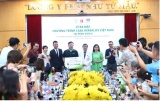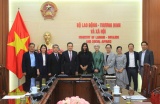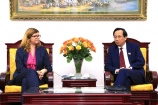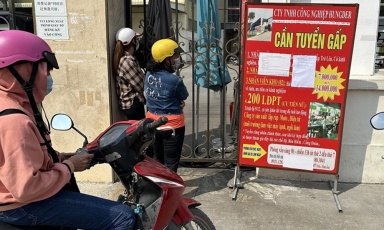UNFPA’s interventions towards the development of a care ecosystem for older persons in Vietnam
(LĐXH)- The United Nations Population Fund – UNFPA joined the discussion with the Ministry of Labour, Invalids and Social Affairs – MOLISA on a holistic policy framework, which is needed to pave the way for actions and creation of a comprehensive elder care ecosystem in Vietnam.
A comprehensive care ecosystem for older persons is a model which offers a wide range of options for each stage of senior care, including home care services, community services, continuing care retirement communities, nursing facilities, hospital care services, and more.
Such a care ecosystem requires collaborative networks, involving both institutional and non-institutional care (home-based and community-based care). The system also needs investment from the private sector in providing care to older persons via public-private partnerships.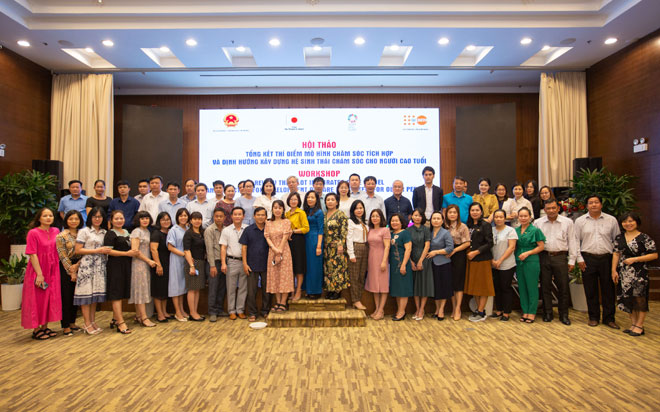

The discussion, held in Danang on 31 May, also heard experience and lessons learnt from the implementation of the integrated care model for older persons by MOLISA and UNFPA in 5 provinces and the city piloted earlier with financial support from the Government of Japan and the UN Joint SDGs Fund.
The integrated care model introduced a new approach and new tools for providing care for older persons and enhanced the capacity on social care at both national and provincial levels.
The model constitutes an important step towards the development of a comprehensive care ecosystem for older persons in Vietnam.
With technical support from UNFPA, MOLISA has developed an integrated care model for older persons to ensure uninterrupted quality care for older persons in COVID-19 and the new normal context. The model was piloted in Thai Nguyen, Thanh Hoa, Nghe An and Vinh Long provinces and Danang city.
After 6 months of piloting, the model has developed a complete set of guidelines for the implementation and the replication to other provinces and cities. They include Standard Operating Procedures, guidelines on case management on care provision for older persons in the normal and COVID-19 context, handbooks for caregivers, among others.
Under the piloted model, some 1,500 older persons received care-need screening and individual care plans.
Meanwhile, more than 1,000 care staff at social protection and social work centres in these piloted provinces and the city as well as home-caregivers of older persons have been trained in responding to COVID-19 and in providing better quality care for older persons in the context of COVID-19 pandemic and in the new normal situation.
More importantly, the piloted model has developed and run a management software for older person care at all the social protection and social work centres in the piloted provinces and the city to helps monitor closely all the care services provided for older persons.
The Assistant Representative of UNFPA Vietnam, Mr. Le Bach Duong, stressed that the integrated care model for older person was built toward ensuring the quality and the accessibility of care services for all older person groups, especially the poor, disabled, and vulnerable older persons./.
Hong Minh
TAG:





